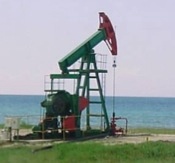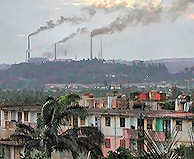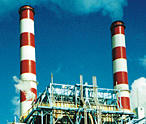
ABOVE: Oyster Bay Pump Works
Patrick Gaillard, president of Oyster Bay Pump Works, a producer of automated liquid dispensing laboratory equipment, recently signed a consent agreement with the Bureau of Industry and Security (“BIS”) under which he agreed to a three-year denial order and a $300,000 fine, $275,000 of which was suspended for one year provided that he commits no further export violations. According to the charging documents, Gaillard shipped laboratory equipment made by his company to Cuba and Iran by transshipping the equipment through Germany and the U.A.E.
Back in 2007. Gaillard pleaded guilty to criminal charges arising out of one of these exports and was sentenced to 30 days in prison, a $25,000 criminal fine, three years of probation, and a $300 special assessment. And, apparently, as Mr. Gaillard walked out of prison after serving his time, there were his friends from BIS, who participated no doubt in the criminal investigation, waiting at the prison gate for a second bite at Mr. Gaillard’s apple. BIS is free to waive about the Supreme Court’s decision in Hudson v. United States, 522 U.S. 93 (1997), which held that subsequent administrative fines almost never violate the Double Jeopardy Clause, but that doesn’t make the double whammy fair or decent, particularly where BIS is knee deep in the criminal trial.
The charging documents also accuse Gaillard of “acting with knowledge,” but the facts supporting these charges don’t seem altogether consistent with that.
Gaillard had knowledge that violations of the regulations were occurring or were about and intended to occur because Gaillard knew of the U.S. embargo of Iran and that the items could not be exported to Iran without U.S. Government authorization. In or around November 2005, a sales representative from an Iranian company approached Gaillard for the sale and export of the items described above to Iran. When Gaillard declined, citing the U.S. embargo of exports to Iran, the sales representative arranged with Gaillard to have the items exported to the Iranian company’s trading arm in the U.A.E., from where the items would be transshipped to Iran.
This suggests that Gaillard may have held the common, but incorrect, belief that the Iran sanctions would not block an export to a country other than Iran. Once the item is in the foreign country, so the belief goes, it is the law of that foreign country which governs whether or not the item can be exported to Iran. If that is what Gaillard believed, it is hard to assert that Gaillard acted with knowledge that his actions were illegal even if his belief were incorrect.

 Posted by
Posted by  Category:
Category: 



 SEE IMPORTANT UPDATE AT THE END OF THIS POST
SEE IMPORTANT UPDATE AT THE END OF THIS POST Yesterday the Office of Federal Assets Control (“OFAC”) published a
Yesterday the Office of Federal Assets Control (“OFAC”) published a 

